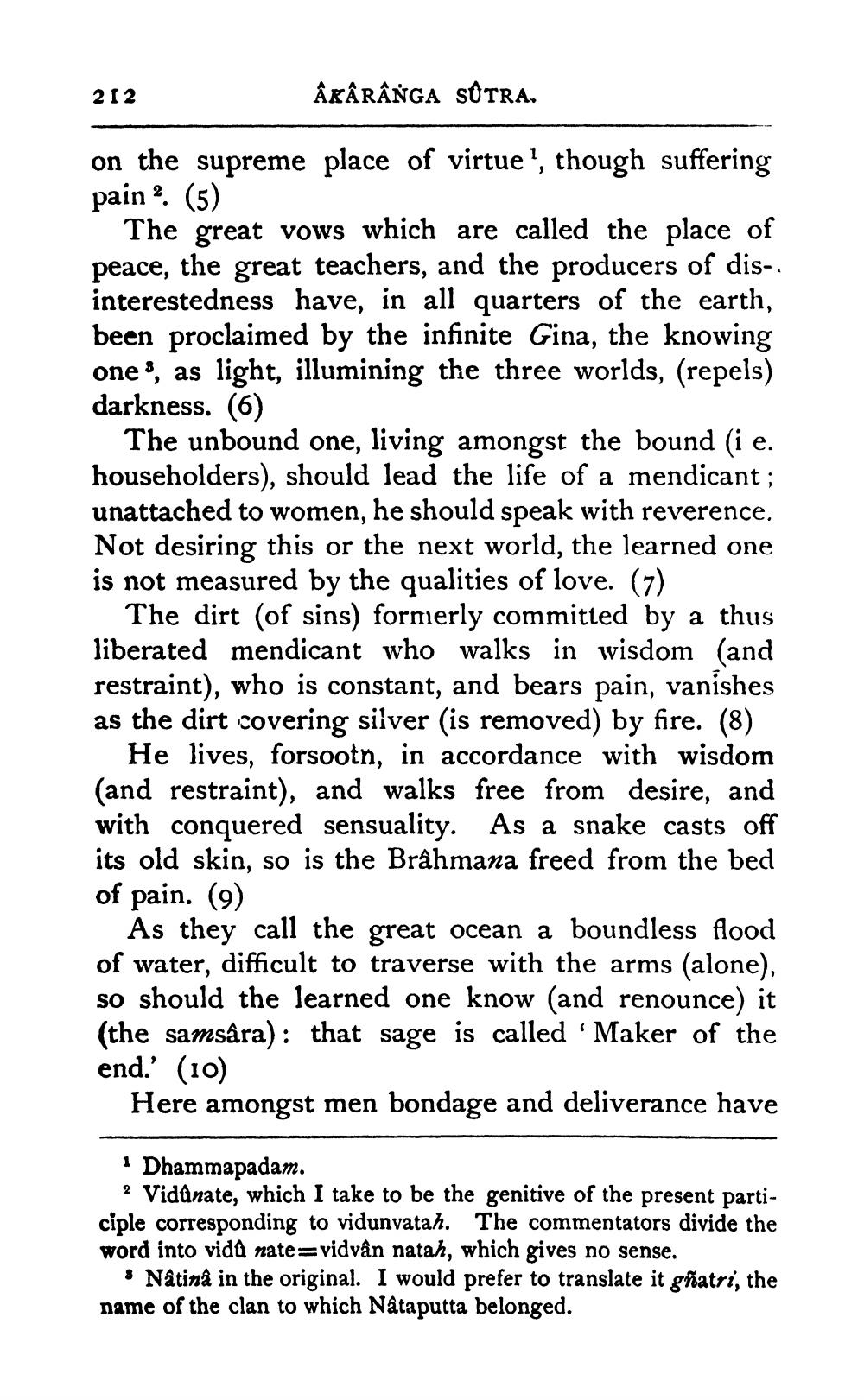________________
212
ÂKÂRÂNGA SOTRA.
on the supreme place of virtue', though suffering pain (5)
The great vows which are called the place of peace, the great teachers, and the producers of dis-, interestedness have, in all quarters of the earth, been proclaimed by the infinite Gina, the knowing one 5, as light, illumining the three worlds, (repels) darkness. (6)
The unbound one, living amongst the bound (i e. householders), should lead the life of a mendicant ; unattached to women, he should speak with reverence. Not desiring this or the next world, the learned one is not measured by the qualities of love. (7)
The dirt (of sins) fornierly committed by a thus liberated mendicant who walks in wisdom (and restraint), who is constant, and bears pain, vanishes as the dirt covering silver is removed) by fire. (8)
He lives, forsootn, in accordance with wisdom (and restraint), and walks free from desire, and with conquered sensuality. As a snake casts off its old skin, so is the Brâhmana freed from the bed of pain. (9)
As they call the great ocean a boundless flood of water, difficult to traverse with the arms (alone), so should the learned one know (and renounce) it (the samsara) : that sage is called 'Maker of the end.' (10)
Here amongst men bondage and deliverance have
1 Dhammapadam.
? Vidänate, which I take to be the genitive of the present participle corresponding to vidunvatah. The commentators divide the word into vidū nate=vidvån natah, which gives no sense.
• Natina in the original. I would prefer to translate it gñatri, the name of the clan to which Nâtaputta belonged.




